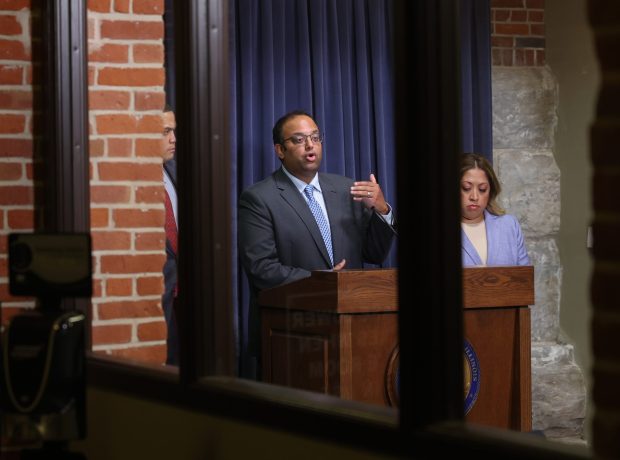For nearly five years, the Chicago Transit Authority paid a small group of employees to stay home and not work at least two days a week, a state watchdog has found.
The employees in question worked in the agency’s vault operations unit, which is responsible for processing money taken from CTA fareboxes. Those workers were not able to perform any of their assigned duties from home, but were nevertheless assigned to work remotely at least two days a week since the beginning of the pandemic, continuing to do so even after the agency-wide return to office date in May 2022, according to a report from the Office of Executive Inspector General.
A total of 10 employees were paid just under $1.13 million for days they spent not working since the start of the pandemic, the OEIG found. The bulk of the payments were made between the onset of the pandemic and the agency’s return-to-office date in May 2022, but the employees were paid $303,932 for remote work between May 2022 and Feb. 1 of this year.
The report, dated Feb. 21, also determined that several CTA managers were aware of the practice of paying workers for remote days during which they could not work but “took no action to reduce or stop such waste.”
“Although paying employees may have been necessary in the very beginning of the pandemic, the CTA’s payment for no work continued week after week for five years,” the report said. “No justifiable reason for this continued payment was provided in any CTA documents or by any of the relevant CTA employees interviewed.”
The watchdog recommended the CTA review its remote work policies to make sure no other employees are being paid to stay home while not working. The OEIG also recommended that the three managers discussed in the report — whose names were redacted and who have all resigned or retired from the CTA — not be rehired.
In a statement, CTA spokesperson Catherine Hosinski said the agency “took immediate action” upon being notified of the issues identified in the report.
“The issues raised in the report were limited to a very small group of 10 individuals out of the CTA’s 11,400 employees. The employees found to have mismanaged this group no longer work at the CTA,” Hosinski said. “The CTA fully cooperated with the investigation and has accepted and implemented all the resulting recommendations to strengthen its policies and practices.”
The report comes as the CTA has warned it will have to make dramatic cuts to transit service if state legislators don’t find funding to avert the massive fiscal cliff facing the region’s transit agencies.
With the looming financial shortfall expected at the end of this year, agencies have said that if lawmakers don’t allocate the funding soon, they will be forced to start planning for unprecedented cuts. The spring legislative session ends Saturday, but lawmakers could punt the issue to later this year.
On March 17, Executive Inspector General Susan Haling wrote to Nathan Rice, the executive director of the Executive Ethics Commission, which is responsible for publishing OEIG reports, pointing to the funding issue and asking the commission to expedite publication of the report.
“As you know, the fiscal operations of the Regional Transit Boards, including the CTA, are currently under review by the General Assembly as it considers budgets and potential proposals to consolidate/reorganize the Chicago-area transit agencies,” Haling wrote. “Because this report contains highly relevant information regarding these legislative issues, the OEIG believes that there is significant public interest in this OEIG report being publicly disclosed without delay.”
One of the managers discussed in the OEIG report, whose name and job titles were redacted, wrote a response to the investigation that was published alongside a letter from his attorney. The employee’s attorney suggested the report “suffers the fatal flaws of accuracy and completeness”, such as by not including interviews of “key witnesses,” and asked the state’s Executive Ethics Commission not to publish the report. Another manager submitted a response denying ever authorizing the payment of employees who were not working.
The CTA’s general counsel, Kent Ray, also wrote a response noting that the agency had taken action in response to the report’s recommendations. He also said that the CTA had not filled recent vacancies for vault operations jobs, leading to total savings of about $2.1 million since 2021. The unit is now down to only two bargaining-unit employees, Ray wrote.
Ray defended the agency in his April 8 response, writing that the agency’s pandemic response was “the same as many other public and private employers across the country in putting the safety of our employees first” and noting that the majority of the remote work payments to vault employees occurred before the agency’s return to office date.
“To be sure, at a certain point in time the Vault Operations employees should have been brought back to work for the full workweek and CTA has taken steps to ensure that this will not occur in the future,” Ray wrote.



